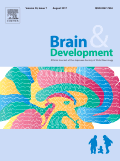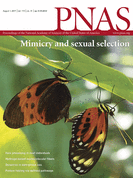 August 3rd is a big day around here — it’s our birthday. Today, we celebrate seven years since two science journalists decided, not exactly on whim but close to it, to launch a blog about retractions. Little did they know. (To hear our co-founder Ivan Oransky talk more about this milestone, check out his podcast interview with Cara Santa Maria, host of “Talk Nerdy.”)
August 3rd is a big day around here — it’s our birthday. Today, we celebrate seven years since two science journalists decided, not exactly on whim but close to it, to launch a blog about retractions. Little did they know. (To hear our co-founder Ivan Oransky talk more about this milestone, check out his podcast interview with Cara Santa Maria, host of “Talk Nerdy.”)
Once again, it’s been a big year. What we’re most excited about is having launched a still-in-progress retractions database. Speaking of still in progress, here’s where we are: The database contains just shy of 8,000 carefully curated and detailed entries, which, when we first started gathering material, seemed to be most of the retractions out there. We now think that there are closer to 9,000 retractions of papers so far, which would mean we’re about 90% of the way to being complete. (For comparison, as of today, PubMed — which is almost exclusively focused on the biomedical literature, rather than all subjects — lists 5,176 retracted papers, and 5,461 retractions of publications.) Along the way, however, we have become aware of large swaths of retracted conference abstracts, some of which we’ve reported on, but most of which we haven’t. Including those, we estimate there are about 15,000 retractions — so there’s still some work to do.
This spring, we were grateful recipients of a $325,000 grant renewal from the Helmsley Charitable Trust. The Trust, and our other generous funders — the MacArthur Foundation and the Arnold Foundation — have enabled us to continue our work, including hiring two new staff writers, Victoria Stern and Andrew P. Han.
Some other highlights:
Continue reading Happy birthday to Retraction Watch! (We’re 7.) And an update on our database.
 Publishing giant Elsevier has retracted an entire issue of one of its journals because the contents — abstracts from a conference about child neurology — were never supposed to make it online.
Publishing giant Elsevier has retracted an entire issue of one of its journals because the contents — abstracts from a conference about child neurology — were never supposed to make it online. The father of a boy with a rare genetic mutation has accused a scientist of exploiting his child by proclaiming the defect a “genetic syndrome” and naming it after herself.
The father of a boy with a rare genetic mutation has accused a scientist of exploiting his child by proclaiming the defect a “genetic syndrome” and naming it after herself.
 A once-prominent researcher in the field of infectious disease — who was found
A once-prominent researcher in the field of infectious disease — who was found 

 The week at Retraction Watch featured the
The week at Retraction Watch featured the 

 August 3rd is a big day around here — it’s our birthday. Today, we celebrate seven years since two science journalists decided, not exactly on whim but close to it, to launch a blog about retractions. Little did they know. (To hear our co-founder Ivan Oransky talk more about this milestone, check out his
August 3rd is a big day around here — it’s our birthday. Today, we celebrate seven years since two science journalists decided, not exactly on whim but close to it, to launch a blog about retractions. Little did they know. (To hear our co-founder Ivan Oransky talk more about this milestone, check out his